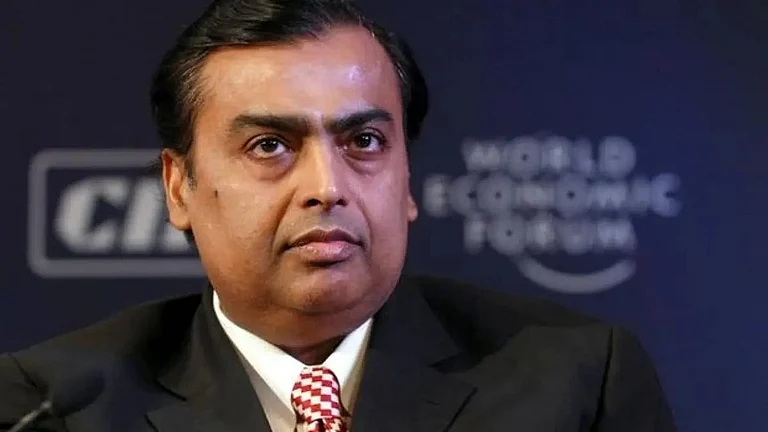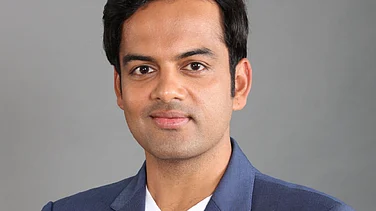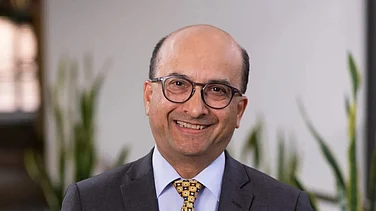The Body Shop India aims to double its retail footprint over the next five years, growing from around 200 stores currently to more than 400, its chief executive Rahul Shanker told Outlook Business. He was speaking on the sidelines of an event organised to mark 19 years of the British beauty brand's presence in India.
The Body Shop in India is operated by Quest Retail under a master franchise agreement and first opened its store in India in 2006. Rahul Shanker took over as Group CEO of Quest Retail in January 2025, following the elevation of longtime chief Shriti Malhotra to Executive Chairperson of the company.
“We are looking at taking our current number of about 200 stores to more than 400 over the next four to five years,” Shanker said. “We would like to prepone this as much as possible... we’re trying to fast-track that so the growth to double happens quicker.”
The announcement aligns with what the global chairman of The Body Shop Group, Mike Jatania, said during his India visit in January. At the time, he had committed to doubling the company’s business in India, which they count as one of their top five growth markets globally.
On Friday, Shanker said the expansion would be driven by a balanced approach, combining physical store growth with strong digital acceleration, though he declined to reveal exact investment figures.
“We used to be a retail-first brand. Now, we’ve significantly dialed up the digital space. We’re going to be making investments in both areas,” he explained.
Currently, nearly 30% of The Body Shop India’s business comes from digital channels, which include their own online platforms, quick commerce channels, as well as third-party platforms like Nykaa. Shanker says they want to increase their online revenue to 45–50% of the total by 2030. “We will be putting a lot of money into our digital play,” he said. “From 30%, we’re targeting 45 to 50% of our business coming from digital in five to six years.”
To support this growth, The Body Shop India also plans to invest in advertising and marketing. “We started this new advertising campaign a couple of months ago,” Shanker noted. “We’ll also have a very powerful brand campaign during the festive season—the kind of campaign The Body Shop deserves.”
"We’ll be creating buzz in the market, that’s for sure,” he added.
Strong Partnership With Parent Company
The Body Shop was founded in 1976 by Anita Roddick in Brighton, UK, with the aim of providing ethical beauty products, pioneering cruelty-free practices, and using naturally inspired, sustainably sourced ingredients. Since its founding, the multinational retail chain has changed ownership three times. In 2006, it was acquired by L’Oréal. A decade later, in 2017, L’Oréal sold the brand to Natura &Co, a Brazilian cosmetics group known for its sustainable practices. In late 2024, The Body Shop was sold to the private European investment firm Aurea Group after its previous owner, the German private equity firm Aurelius, filed for administration just three months after acquiring the company.
The Indian franchise owner says, "this is nothing unique to The Body Shop in the beauty and personal care space."
"Look at global brands operating across transnationals. You will see that this is how businesses move. Businesses do get merged; businesses do get acquired. It’s a day in the life. So as Quest Retail, we are very strong, solid, hand-in-hand partners with The Body Shop. We have a fantastic relationship with the parent company," said Shanker.
Quest Retail’s portfolio also includes Kiehl’s, Avon, Kylie Cosmetics, Anastasia Beverly Hills, Max Factor, Boddess, and The Honest Tree.
Making The Body Shop More Accessible
While The Body Shop India positions itself in the ‘upper masstige’ segment — offering quality and aspirational appeal without being prohibitively expensive — Shanker says the brand caters to a wide range of price tiers, remaining committed to preserving its premium perception.
“A brand will not just target one sub-segment,” he said. “We have a large portfolio, and different parts of it cater to different price tiers. But we’re not aiming to become a mass or value brand—that would dilute our positioning.”
In April 2025, the company took a significant pricing step to improve affordability. “Last month, we reduced our consumer prices by 25–30% without changing any of the product codes. The idea was to make the brand more accessible, but not so low that consumers question the quality,” the CEO explained.
Talking about intense competition in the beauty and personal care segment in India, The Body Shop management said they aim to double down on their original message.
He acknowledged the growing competition, “The market is crowded now, with every brand claiming clean beauty. That’s exactly why our team is focused on initiatives like ‘Plastics for Change’ (PFC), which reflect our core values. We have the advantage of being already established as a clean beauty brand. Our challenge is to communicate this effectively in the right consumer language to stand out.”
"Ethical sourcing is key to our brand. Local production is on our agenda for the future. We will start getting more and more India Edit products. In fact, you will be happy to know that we are launching a new variant in India Edit very soon — somewhere around Diwali, pre-Diwali," he added.
Shanker also highlighted, “Clutter is a reality, and it’s only just begun here. Last year alone, 27 global beauty brands entered India — brands that took Western markets seven to eight years to establish are arriving here within a year or so. Staying relevant means keeping close to consumer needs and market trends.” The Body Shop India competes with brands like Plum, Mamaearth, Lush, and Nykaa Naturals, all offering natural, ethical, and clean beauty products.
“We have our eyes and ears firmly on the ground and are in it for the long haul. Next year, The Body Shop will celebrate 50 years globally, and we remain deeply committed to offering Indian consumers the authentic Body Shop experience we’ve been known for almost half a century,” he added.

































